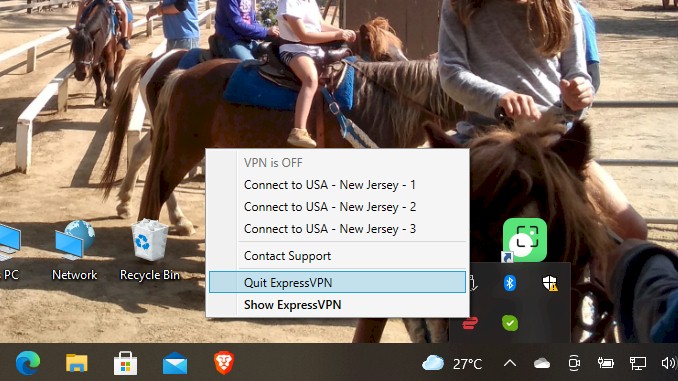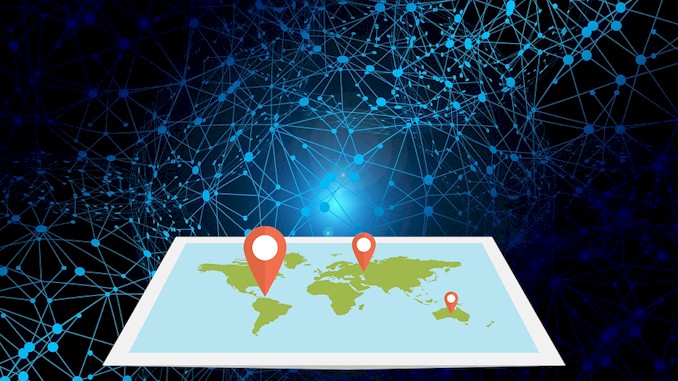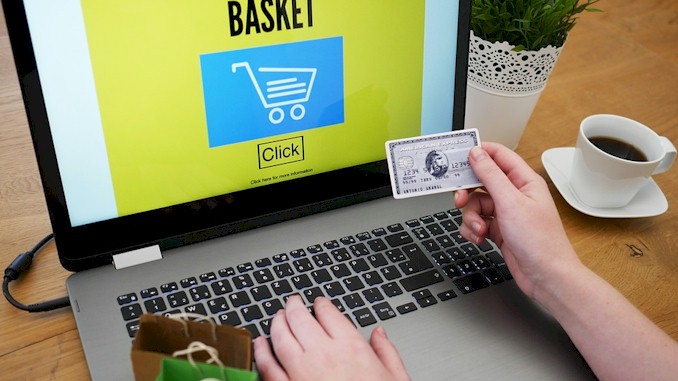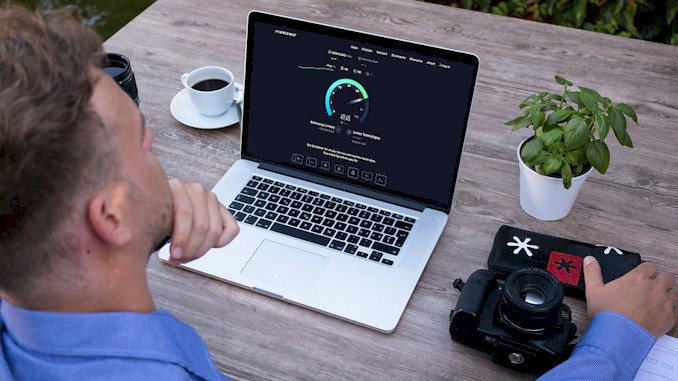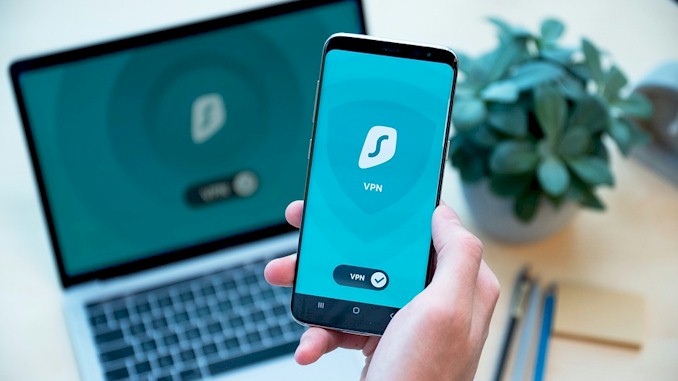Avoid These VPN Traps: Mistakes You Mustn’t Make
So you have invested much in the VPN and arranged the needed time to learn how to use it, what a VPN can do for you, and what benefits the VPN brings you. Then you begin to wonder what you should not do while using a VPN so you can make the most of it without compromising your privacy, security, and anonymity. I’ve been in your shoes before. That’s why I’ve spent some time researching it. This is what I’ve discovered.
For your online privacy, security and anonymity, while you are using a VPN, don’t visit malicious websites, don’t use Social Media, Email, Membership Website in which you register with your real identity, and don’t using the same devices access the same websites, finally don’t access sites that require any kind of login or identifiable information.
In the following sections, I will explain in more detail why you should avoid those common mistakes while using a VPN. I will also give you some tips and tricks on how to optimize your online privacy, security and anonymity. By the end of this blog post, you will have a clear understanding of what not to do while on VPN, and how to enjoy a smooth and secure VPN experience. So, stay with me and let’s dive in.
Visiting Malicious Websites
When using a VPN, it’s important to understand that while it can provide a layer of protection, it’s not a foolproof solution for online security. One of the biggest mistakes people make while using a VPN is visiting malicious websites, thinking that the VPN will protect them from any harm. However, this is far from the truth, as visiting these sites can still compromise your online privacy, security, and anonymity. Now, we are going to explore why you shouldn’t visit malicious websites while using a VPN and how it can impact your online safety.
Firstly, it’s essential to understand what we mean by malicious websites. Malicious websites are those that are designed to harm your device, steal your personal information, or install malware on your computer. These websites often masquerade as legitimate ones and can be challenging to spot for the untrained eye. When you visit a malicious website, it can collect your browsing data, track your online activity, and even install spyware on your device, compromising your privacy and security.
While a VPN can provide an extra layer of security by encrypting your internet traffic, it doesn’t protect you from malicious websites. VPNs work by creating a secure tunnel between your device and the internet, which prevents anyone from intercepting your online activity. However, if you visit a malicious website, the VPN can’t protect you from the harmful actions of the website itself. In fact, some malicious websites can even detect when you’re using a VPN and use this information to track your activity or install malware on your device.
Additionally, visiting malicious websites can compromise your anonymity. VPNs work by masking your IP address, making it difficult for websites and online services to track your location. However, if you visit a malicious website and it manages to compromise your device, your true IP address could be revealed. This means that your location, device information, and online activity could be exposed, compromising your anonymity and putting your online safety at risk.
As you see, while a VPN can provide an extra layer of security and privacy, it’s essential to avoid visiting malicious websites while using one. These websites can still compromise your online safety and anonymity, even if you’re using a VPN. Therefore, it’s crucial to stay vigilant and avoid clicking on any suspicious links or visiting unverified websites. By doing so, you can make the most of your VPN without compromising your online security.
Using Social Media, Email, Membership Website in which you register with your real identity
Social media, email, and membership websites are ubiquitous in our daily lives, and many of us use them regularly. However, when it comes to online privacy, security and anonymity, it’s essential to be cautious about the information you share on these platforms. While using a VPN can provide an extra layer of security, registering with your real identity on these websites can still compromise your online privacy. Let me explain to you the risks of using social media, email, and membership websites while registering with your real identity and using a VPN, and how to mitigate them.
So, when you register with your real identity on social media platforms, you’re exposing a lot of personal information to the public. This includes your name, location, age, interests, and sometimes even your phone number and email address. Social media platforms are designed to collect and analyze this data to provide personalized content and advertising to users. However, this also means that your personal information is vulnerable to data breaches, hacking attempts, and identity theft. Additionally, your online activity on social media can be tracked and monitored by third parties, compromising your online privacy.
Similarly, if you register with your real identity on email services, you have made the connection between your identity to your inbox, which often contains sensitive information. This includes personal and professional emails, bank statements, and login credentials for other websites. Email services are also vulnerable to data breaches and hacking attempts, which can expose your personal information and compromise your online security.
Now let’s talk about membership website, this kind of website require you to register with your real identity, such as online shopping websites, can also pose a risk to your online privacy and security. These websites often store your personal and financial information, such as your credit card details and shipping address. If the website is compromised, this information could be stolen, leading to identity theft and financial loss.
To mitigate these risks, it’s essential to use caution when registering with your real identity on social media, email, and membership websites. Use a VPN to encrypt your internet traffic and mask your IP address, making it more difficult for third parties to track your online activity. Additionally, avoid sharing sensitive information on these platforms, such as your phone number and email address, and regularly check your privacy settings to ensure that your personal information is not visible to the public.
Now you have learned that while using a VPN can provide an extra layer of security, it’s crucial to be cautious when using social media, email, and membership websites while registering with your real identity. By taking these steps to protect your online privacy and security, you can make the most of these platforms without compromising your personal information.
Using the same devices access the same websites
If you use the same devices to visit websites both with and without a VPN, it can compromise your anonymity because your online activities can be correlated, potentially revealing your true identity.
Here’s how it works:
- IP address correlation: When you connect to a website through a VPN, your IP address appears to be that of the VPN server, masking your actual IP address. However, if you visit the same website without a VPN, your real IP address may be exposed. If someone, such as a website owner or a malicious actor, can correlate the IP addresses used to access a particular website, they may be able to link your VPN IP address to your real IP address, potentially revealing your identity.
- Browser fingerprinting: Websites can use various techniques, such as cookies, JavaScript, and other tracking technologies, to create a unique “fingerprint” of your web browser based on its configuration, plugins, fonts, and other characteristics. If you visit a website both with and without a VPN, your browser fingerprint can be the same, potentially allowing websites or other actors to correlate your activities and identify you.
- Login and account information: If you log in to an account, such as social media or email, both with and without a VPN, your account information, such as usernames, passwords, and session cookies, can be associated with your real identity. This can compromise your anonymity if this information is correlated with your VPN and non-VPN activities.
To maintain maximum anonymity when using a VPN, it’s advisable to avoid using the same devices for activities that are associated with your real identity, both with and without a VPN. If you want to maintain complete separation between your VPN and non-VPN activities, you can use different devices or browsers or even use virtual machines or sandboxing techniques to isolate your online activities. Additionally, taking other privacy measures, such as disabling browser cookies, using browser extensions that block tracking technologies, and regularly clearing your browsing history, can further enhance your anonymity when using a VPN or browsing the internet in general.
Sites that require any kind of login or identifiable information should be avoided
Using a VPN (Virtual Private Network) can help enhance your online privacy and security by encrypting your internet connection and masking your IP address. However, if you access websites that require login or identifiable information while using a VPN after previously accessing those websites without a VPN, it can potentially compromise your anonymity. Here’s how it works:
- IP Address: When you connect to a website without a VPN, your IP address is visible to that website. The website can log your IP address, associate it with your account or activities, and potentially use it to identify you.
- Login or Identifiable Information: Websites often require users to create accounts or provide personal information for various purposes, such as registration, purchases, or accessing certain features. This information can be linked to your account and used to identify you.
- Session Tracking: Websites may track your activities and sessions by associating them with your IP address or account. This includes logging your login times, browsing history, interactions, and other data associated with your account.
- Cross-Referencing: If you previously accessed a website without a VPN and provided identifiable information or logged into your account, and later accessed the same website using a VPN, the website can potentially cross-reference the IP address used during your previous sessions with the IP address used with the VPN. By doing so, they may be able to link your activities while using the VPN to your previous sessions and potentially identify you.
To maintain a higher level of anonymity while using a VPN, it’s recommended to follow these practices:
- Use Different Accounts: Create separate accounts for VPN usage that are not linked to your existing accounts. This reduces the risk of cross-referencing your activities.
- Clear Cookies and Local Data: Clear your browser cookies and local data before using a VPN to minimize any stored information that could be linked to your identity.
- Use Private Browsing Modes: Utilize private or incognito browsing modes in your web browser to prevent session tracking and minimize data retention.
- Be Mindful of DNS Leaks: Ensure that your VPN is configured correctly to prevent DNS leaks, which could potentially expose your true IP address and compromise your anonymity.
Remember, maintaining complete anonymity online is challenging, and it depends on various factors such as the websites you visit, their data collection practices, and your own online behavior. Using a VPN is just one step towards enhancing your privacy, but it’s important to understand its limitations and adopt additional measures to protect your identity and personal information.


